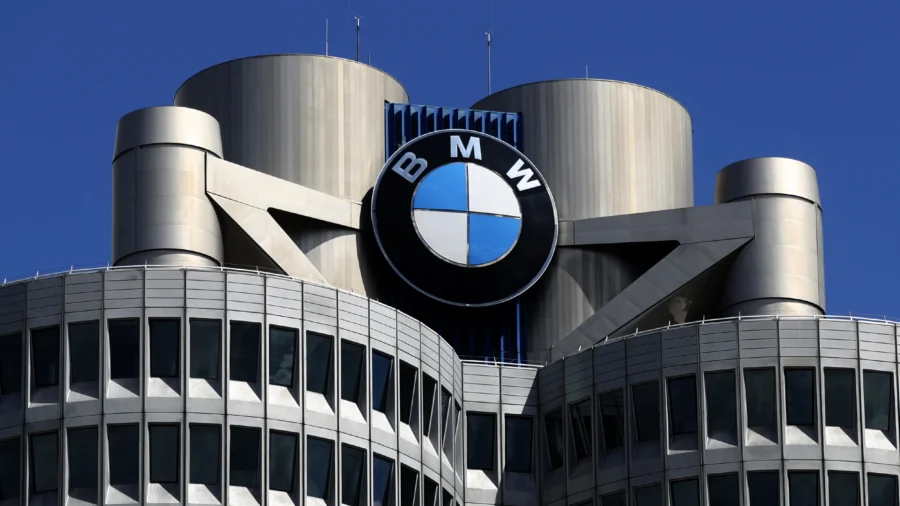The BMW Group announced Friday that it will begin using vegetable oil-based fuel in its diesel engines starting January 2025 for all diesel models produced in Germany, a move the company said aims at reducing carbon dioxide emissions.
Chairman of the Board of Management for BMQ AG, Oliver Zipse, said the engines will be fueled by HVO 100, a substitute for diesel.
“When it comes to climate protection, every ton of CO2 saved counts,” Zipse stated. “The more than 250 million existing vehicles in Europe are an important factor here: Their CO2 balance could be significantly improved if the regenerative share of fuel was increased.”
The company plans to use HVO 100, a high-quality diesel replacement that stands for “hydrotreated vegetable oil.” According to BMW Group, this fuel can reduce CO2 emissions by up to 90 percent compared to fossil diesel.
The automotive giant will implement “Neste MY Renewable Diesel” at its plants in Munich, Dingolfing, Regensburg, and Leipzig, which together produce over half of BMW Group’s diesel-powered vehicles.
After manufacturing, vehicles will be initially filled with five to eight liters of the fuel, depending on the model, before being delivered to the BMW Group sales department as part of an initiative to reduce CO2 emissions across all areas of its operations.
Since late May, paraffinic diesel HVO has been available for sale at gas stations in Germany. The fuel is produced from various waste materials such as cooking oils and other renewable raw materials. The company said palm oil is not used in its production, nor does it contain conventional biodiesel.
The company highlighted several technical advantages of HVO 100 over fossil-based diesel, including better cold start performance and resistance to microbial contamination, often referred to as “diesel plague.”
To promote the use of renewable fuels further, BMW Group is advocating for quotas of at least 30 percent real greenhouse gas reductions in the Renewable Energy Directive (RED III), which must be implemented in national law by the end of May 2025.
BMW’s diesel engines, developed at the Steyr plant in Austria, have been approved for HVO 100 fuel in accordance with the European fuel standard EN 15940, beginning with specific models produced from March 2015.
The company is also testing the compatibility of various other fuels for its engines, including B10 and all e-fuels approved within the EN590 fuel standard for diesel engines and E25 and eFuels approved within the EN228 fuel standard for petrol engines.
In addition to its use in vehicles, BMW Group has been using HVO 100 in its plant logistics trucks since March 2023. Four trucks from logistics service provider Guggemos (GV Trucknet) have been operating between Landau and Isar and the BMW Group plant in Munich, with six more trucks from DB Schenker’s fleet joining the initiative.
The BMW Group has also joined the eFuels Alliance, which aims to advocate for a “pragmatic regulatory framework” and rapid market adoption of renewable fuels.
Vegetable Oil Fuel Faces Scrutiny
However, the use of vegetable oil as a fuel source is not without controversy. According to a December 2021 analysis from the U.S. Department of Energy Office of Energy Efficiency and Renewable Energy, there are several technical barriers to using straight vegetable oil (SVO) as a vehicle fuel.
The analysis states, that “using SVO leads to reduced diesel engine life caused by the buildup of carbon deposits inside the engine and the accumulation of SVO in the engine lubricant.”
These issues are attributed to SVO’s high viscosity and high boiling point relative to the required boiling range for diesel fuel.
While BMW’s initiative focuses on HVO, which is being processed to address some of these concerns, the debate surrounding using vegetable-based fuels in vehicles continues.
In a broader context, some scientists challenge the premise that carbon dioxide harms the environment. Last year, the Global Climate Intelligence Group (CLINTEL) released a World Climate Declaration, signed by over 1,600 scientists and professionals, stating, “There is no climate emergency.”
The declaration argues that carbon dioxide is beneficial to Earth and essential for all life.
John Francis Clauser, a Nobel laureate in physics and one of the signatories, criticized current climate models, stating they vastly underestimate the role of cumulus cloud reflection in regulating Earth’s temperature.
“The popular narrative about climate change reflects a dangerous corruption of science that threatens the world’s economy and the well-being of billions of people,” Clauser said in a May 5, 2023 statement.

